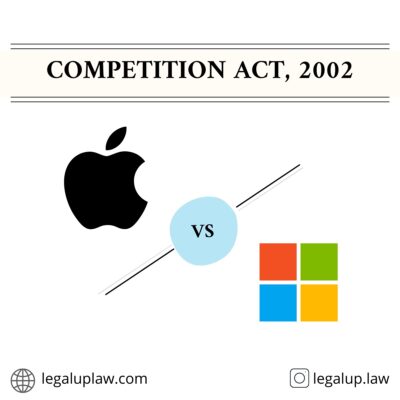Cambridge Dictionary characterizes ‘locus standi‘ as the option to carry lawful activity to a courtroom or to show up in a court. The legitimate ability to sue or move toward courts is known as locus standi. The gatherings who look for the courts in both the inquisitorial and antagonistic frameworks more likely than not been violated or denied of their freedoms. Therefore, the presence of locus standi is needed in any legal action.
Table of Contents
What is Locus Standi?

Any party who has been harmed or injured by a private individual or the government can file a lawsuit in our judicial system. It is critical to show that the individual who is approaching the court has been injured or that his legal rights have been violated throughout this process. To put it another way, there must be a sufficient link between the injury and the individual who approaches the court. This is known as the “Locus Standi” doctrine because it assures that only genuine parties appear in court. However, in recent years, the norm of locus standi has been modified, allowing a concerned citizen to petition the court on behalf of the poor and oppressed.
The notion of locus standi is addressed in India’s civil procedural code under Order 7 Rule 11 of 1908. The plaintiff or appellant must first establish his locus standi before proceeding with the case, following which the trial will begin. If the condition of locus standi is not met, the court might dismiss the whole case, regardless of its merits.
Essentials to prove Locus standi
Injury: The primary requirement for instituting a suit is that the person must have suffered some injury. As per the Oxford dictionary, the term injury means the violation of any legal right or some other physical or monetary harm that occurred to any person. The injury can occur from the act of private parties or the act of state. It is also important to note that the injury may be actual or maybe anticipatory. Further, the nature of the injury can be economic or non-economic.
Cause: The phrase causality refers to the link between cause and effect. It means that the act of one party and the harm experienced by the other party must have a sufficient link. This ingredient’s major goal is to guarantee that the harm can be linked back to the defendant’s actions. It also assures that the alleged harm is not the result of some unrelated or unrelated third party.
Competititon Commission of India (CCI)

Competition law in India is administered by Competition Act, 2002 (“Act”) and the Competition Commission of India (“CCI”) arbitrates over infringement of the Act. CCI has administrative just as semi-legal forces. The issue of locus standi before CCI is a significant conversation in rivalry law statute, particularly in India, where the law is always developing. This article clarifies the applicable arrangements of the Act just as milestone judgment by the Supreme Court of India on this issue.
Important Sections
Section 19 gives that the Commission might ask into any supposed contradiction of Section 3 and 4 of the Act either on its movement or on receipt of data from any individual, purchaser, or their affiliation or exchange relationship as given by Section 19(1)(a) or on a reference made to CCI by the Central Government or a State Government or legal authority according to Section 19(1)(b) of the Act. Segment 19(1) of the Act was corrected in 2007 and the words “receipt of protest” were supplanted by “receipt of data”.
Finding out a deeper, hidden meaning of the Preamble of the Act, the Commission must forestall works on affecting rivalry, advance and support contest in business sectors, secure the interest of the purchasers, and guarantee the opportunity of exchange. After scrutiny of these targets, the term ‘any individual’ suggests no severe principle of locus standi.
General regulations of the CCI, 2009

The accompanying arrangements of CCI General Regulations are pertinent to our comprehension of locus standi before the Commission:
Guideline 2(i) characterizes ‘party’ as:
(I) “Party” incorporates a shopper or an undertaking or an individual characterized in provisions (f), (h) and (l) of Section 2 (20) of the Act separately, or a data supplier, or a customer affiliation or an exchange affiliation or the Director-General characterized in condition (g) of Section 2 of the Act, or the Central Government or any State Government or any legal power, all things considered, and will incorporate an endeavour against whom any request or continuing is organized alongside any individual allowed to join the procedures or an intervener.”
Guideline 10 accommodates the substance of data or reference as given in Section 19 of the Act –
10. Substance of data or the reference. –
(1) The data or reference (aside from a reference under sub-segment (1) of Section 49 of the Act) will entomb Alia, independently and completely express the accompanying seriatim-
(a) the legitimate name of the individual or the undertaking giving the data or the reference;
(b) complete postal location in India for the conveyance of request or notice by the Commission, with Postal Index Number (PIN) code;
(c) phone number, fax number, and electronic mail address, if accessible;
(d) method of administration of notice or records liked;
(e) legitimate name and address(es) of the enterprise(s) claimed to have repudiated the arrangements of the Act; and
(f) legitimate name and address of the insight or other approved agent, assuming any;
(2) The data or reference alluded to in sub-guideline (1) will contain –
(a) an assertion of realities;
(b) subtleties of the supposed repudiations of the Act along with a rundown enrolling all archives, oaths, and proof, all things considered, on the side of every one of the supposed negations;
(c) a concise account on the side of the supposed repudiations;
(d) the help looked for assuming any;
(da) subtleties of the case or debate forthcoming between the witness and gatherings under the steady gaze of any court, council, legal power, or referee in regard to the topic of data; 21
(e) Such different points of interest as might be needed by the Commission.
(3) The substance of the data or the reference referenced under sub-guidelines (1) and (2), alongside the informative supplements and connections thereto, will be finished and appropriately checked by the individual submitting it.”
Guideline 25 accommodates the force of Commission to allow an individual or undertaking to partake in procedures –
25. Force of Commission to allow an individual or undertaking to partake in procedures. (1) While thinking about a matter in a standard gathering, the Commission, on an application made to it recorded as a hard copy, whenever fulfilled, that an individual or endeavour has a significant interest in the result of procedures and that the public interest needs to permit such individual or venture to introduce his or its viewpoint on that, may allow that individual or undertaking to present such assessment and to partake in additional procedures of the matter, as the Commission might indicate… .”
Judicial Precedents
Samir Agarwal v. Competition Commission of India
Supreme Court of India addressed the accompanying issues for this situation –
1. Regardless of whether an individual from the general population can record data with the CCI charging an infringement of the Act.
2. Regardless of whether a wronged party can record an enticement for the NCLT and from that point to the Supreme Court against the request for the CCI.
Public Company Law Appellate Tribunal (NCLAT) excused the applicant’s allure on the ground that he isn’t a shopper of one or the other Ola or Uber, while the Supreme Court, on examination of the arrangements of the Act and Regulations, held that the meaning of individual in Section 2(l) of the Act is comprehensive and amazingly wide. The Competition (Amendment) Act, 2007.
subbed ‘receipt of grumbling’ to ‘receipt of data’ under Section 19(1) of the Act. This replacement is huge as an objection can be recorded exclusively by a bothered individual while any individual might get data. The Court likewise held that Section 45 of the Act goes about as an impediment against trivial and vexatious prosecution as it accommodates a punishment up to Rs. 1 crore for bogus cases. As to Appeals, the Court held that Section 53B of the Act gives that any individual abused by any request, course, or choice of the Commission can speak to NCLAT. Area 53T of the Act accommodates requests to the Supreme Court by any individual abused by any request, choice, or heading of the Appellate Tribunal.
Shri Surendra Prasad v. Competition Commission of India
For this situation, the Competition Appellate Tribunal (COMPAT), held that ‘Parliament has neither endorsed any capability for the individual who needs to document a data under Section 19(1)(a) nor recommended any condition which should be satisfied before data can be recorded under that segment.’ The past Tribunal saw that Sections 18 and 19 don’t give forces to the Commission to dismiss the supplication for examination under Sections 3 and 4 because the source doesn’t have an individual interest regarding that situation.
Harshita Chawla v. WhatsApp Inc
For this situation, the Opposite Parties (OP) tested the locus standi of the source depending on NCLAT’s choice in the Samir Agarwal case. Alluding to the prelude and arrangements of the Act, CCI saw that the Act had been considered to follow an inquisitorial framework wherein the Commission is relied upon to examine cases including contest issues in rem as opposed to going about as a simple mediator to discover realities and decide privileges in personam emerging out of adversary claims between parties.
Dr. L.H. Hiranandani Hospital v. Competition Commission
COMPAT held that the Act doesn’t recommend any capability to distinguish the locus of a source.
Conclusion
At the point when NCLAT changed the situation of locus standi on rivalry law cases, this was a moving discussion in contest law. CCI used to depend on its previous decisions referred to above to go against this perspective of NCLAT. This made disarray and vulnerability for the disputants. Nonetheless, Supreme Court’s judgment in Samir Agarwal Case has been a milestone for this exceptionally easy to refute issue. Both the Act just as Regulations give any individual locus standi to record data before the Commission.
References
- https://legaluplaw.com/priyam/what-is-competition-act-2002-everything-you-need-to-know/
- https://legaluplaw.com/priyam/the-competition-amendment-bill-2012/
- https://legaluplaw.com/priyam/competition-law-review-committee-report/
- https://legaluplaw.com/priyam/critical-analysis-competition-law-from-ipr/
- https://legaluplaw.com/priyam/competition-law-entrepreneur-must-know/




1 Comment